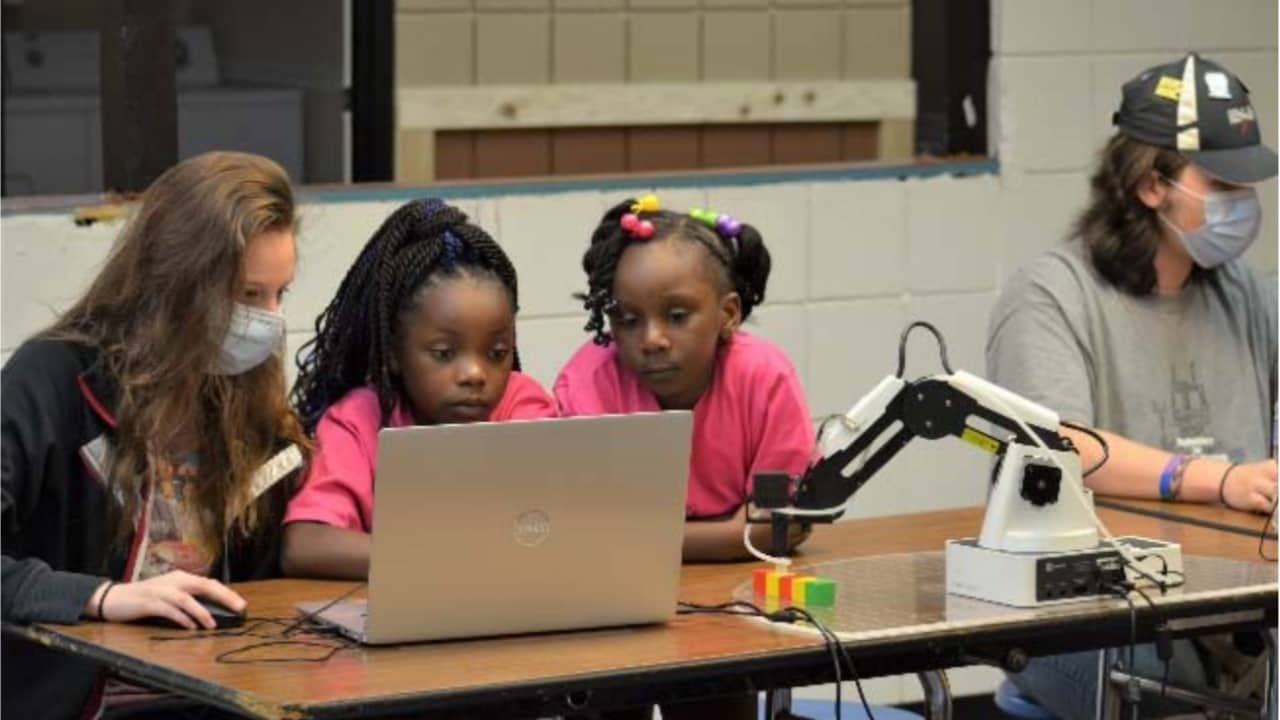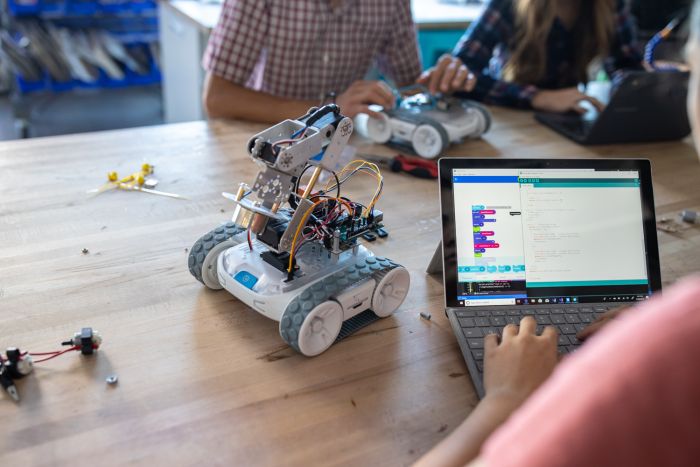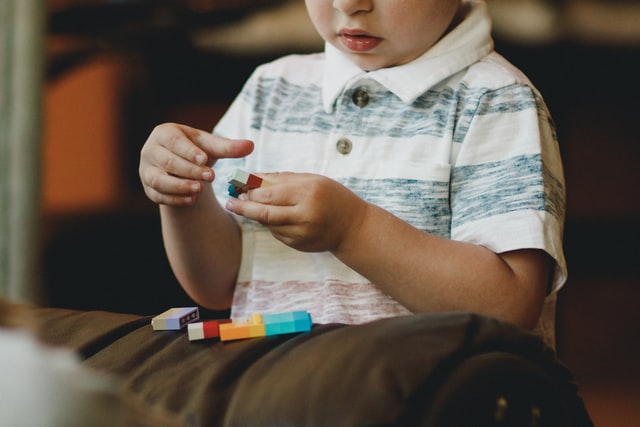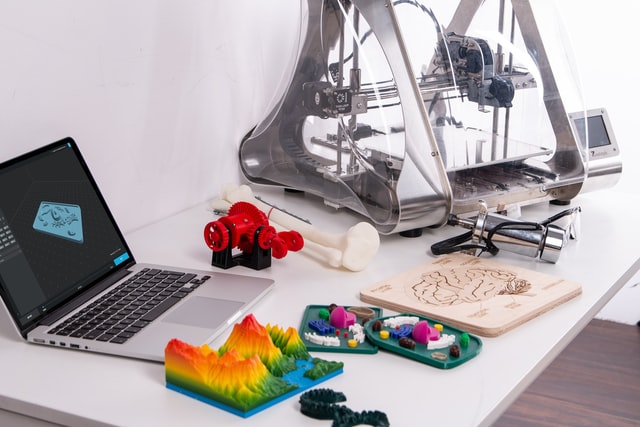Summer Manufacturing Robotics Camps for Children Initiated by Purdue Polytechnic in the United States
On September 7, faculty and students from Purdue Polytechnic teamed with local businesses and tech-focused higher-education institutions to bring lessons in robotics and manufacturing to local youngsters during week-long summer camps

- 0 Comments
- Oct 1, 2020 10:00:00 AM
- Posted by Natalia Galvis
- Topics: Math, EdTech, STEM, Curriculum, Special Education, teachers, autism, students, Technology, VR, Edchat, Digital Technology, teaching, online, virtual learning, lessons, eLearning
Creating Online Clubs for Students During Remote Learning
A teacher who sponsors a coding club shares how it helps students meet peers with similar interests and feel less alone while learning at home.

- 0 Comments
- Sep 30, 2020 10:00:00 AM
- Posted by Natalia Galvis
- Topics: Math, EdTech, STEM, Curriculum, Special Education, teachers, autism, students, Technology, VR, Edchat, Digital Technology, teaching, online, virtual learning, lessons, eLearning
Helping Students with Autism Navigate a Socially Distanced Classroom
Some well-planned strategies can help students with autism thrive as school resumes--even with social distancing measures in place.
 Photo by Michał Parzuchowski on Unsplash
Photo by Michał Parzuchowski on Unsplash
- 0 Comments
- Sep 29, 2020 10:00:00 AM
- Posted by Natalia Galvis
- Topics: Math, EdTech, STEM, Curriculum, Special Education, teachers, autism, students, Technology, VR, Edchat, Digital Technology, teaching, online, virtual learning, lessons, eLearning
RobotLab and MOVIA Robotics Are Proud Suppliers Of Robot-Assisted Instruction For Special Education
Hello, everyone, my name is Elad Inbar. I'm the CEO of Robot Lab, and today I want to talk to you about a solution that we are bringing to the schools for special education.
- 0 Comments
- Sep 16, 2020 3:30:00 PM
- Posted by Natalia Galvis
- Topics: EdTech, STEM, Curriculum, Special Education, teachers, autism, students, Technology, Edchat, Digital Technology, teaching, online, lessons, eLearning
The Many Benefits of STEM Education
If you’re concerned that STEM is taking up too much classroom time, consider this: STEM permeates the curriculum in ways subjects taught in isolation can’t. STEM also teaches the skills students need for success beyond their formal education.
Teachers know that they have to take advantage of every minute of instructional time they can get with students. STEM programs, with their integrated lessons, seem to usurp a considerable amount of instructional time. That can lead to arguments about pulling kids away from traditional subjects like science and math.
However, STEM offers students experiences they can’t get in traditional classrooms. STEM integrates learning through interdisciplinary studies. It affords the application of 21st-century learning skills. And finally, STEM teaches resilience.
- 0 Comments
- Jul 23, 2020 10:00:00 AM
- Posted by Natalia Galvis
- Topics: Robotics, STEM, Special Education, Coding, Robots,, students, summer, Edchat, online, distance learning
Robots May Help Kids with Special Needs
The numbers for autism are staggering:
-
1.8 million cases of autism in the U.S.
-
1 case diagnosed every 20 minutes
-
24,000 new cases diagnosed in the U.S. every year.
-
Lifetime care for an autistic person: $3.2 million.
-
Autism care costs annually in U.S.: $35 billion.
 Photo by Caleb Woods on Unsplash
Photo by Caleb Woods on Unsplash
Bonnie Gamane speaks wistfully as she recalls the day last year when a robot named Millennia visited the school she administers. What she saw were children with autism interacting with the robot in a way they never had before interacted with humans.
- 0 Comments
- Jul 22, 2020 10:00:00 AM
- Posted by Natalia Galvis
- Topics: Robotics, STEM, Special Education, autism, Coding, Robots,, students, summer, Edchat, online, distance learning
The key role of EdTech in Special Education
Some students face more challenges than others in their learning process. They were once labelled as ‘lazy’ or ‘stupid’; today, with our better understanding of the medical conditions that can hinder learning, they are simply students with special needs.
Students with physical or cognitive disabilities require special education teachers who can give them individual attention, which is often a problem for institutions that are understaffed or have a modest budget; however, investing in assistive technology can increase their level of independence and decrease the need for one-on-one time—it does not eliminate the need for special ed teachers completely, but it certainly reduces the strain. Let’s see how.
- 0 Comments
- Dec 13, 2019 10:05:00 AM
- Posted by Natalia Galvis
- Topics: EdTech, Education, NAO, Special Education, autism, Edchat
Washoe County School District Gifted and Talented Program- Case Study
Washoe County School District Gifted and Talented Program- Case Study with RobotLAB at NAGC (National Association for Gifted Children) Conference 2016
I am Cheri Di Martino. I am the Director of Washoe county School District – our gifted program. And we are really excited to talk about NAO with you today. What we did in Washoe County is we knew we needed to get into the 21st century, we knew we needed to teach kids at a level they needed to be taught, so we were looking for a partner that could take us into the 21st century and get those NAGC standards, our state standards and have this beautiful marriage together. Well, what we found was RobotLAB, and we found the NAO robot. So what we asked was could a picturesque humanoid robot achieve what we wanted to achieve in Washoe County? This is something that could really help take our
students to a whole other level. This is something I'm feeling very passionate about, but I could feel passionate about something, but will everybody else around me feel that same passion, that same energy and want to buy into this incredible, incredible product.
- 0 Comments
- Jun 9, 2017 2:04:57 PM
- Posted by Maria Alejandra Calcetero
- Topics: EdTech, Education, NAO, Special Education, Gifted and talented students, Robots,
NAO to be Used in Special Education Elective
 Great news: a new Robotics Elective to help students learn computer coding will start in September at the NuView Academy of New Jersey . Teachers will also be hosting “Running Robots: Computer Coding & Special Education” - an Action Lab at the New Jersey School Boards Association’s 2016 Workshop in Atlantic City in October.
Great news: a new Robotics Elective to help students learn computer coding will start in September at the NuView Academy of New Jersey . Teachers will also be hosting “Running Robots: Computer Coding & Special Education” - an Action Lab at the New Jersey School Boards Association’s 2016 Workshop in Atlantic City in October.
- 0 Comments
- Oct 5, 2016 10:02:00 AM
- Posted by Chrissy Hoff Hudson
- Topics: Robotics, NAO, Special Education
Relevant Posts
Popular Posts
Subscribe to Email Updates
-
I Want To Learn MoreADDITIONAL INFORMATION


 Unsplash
Unsplash